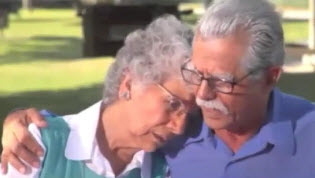 It was so painful to watch; she gently and adoringly held his hand and stroked his withered face as he looked at her with a questioning look unable to recognize his wife of 56 years. The disease seemed to have crept up or perhaps it was there for a long time, yet accepting the reality was just not something anyone in the family was prepared to fully recognize.
It was so painful to watch; she gently and adoringly held his hand and stroked his withered face as he looked at her with a questioning look unable to recognize his wife of 56 years. The disease seemed to have crept up or perhaps it was there for a long time, yet accepting the reality was just not something anyone in the family was prepared to fully recognize.
Often memory loss and other symptoms of Alzheimer’s may be hidden under the guise of normal aging. This can be especially difficult for family members who may better accept that the person is just getting older much easier than facing what can be a devastating diagnosis of any of the many different forms of dementia. The reality is that many people do have memory loss issues, but this does not necessarily mean that they have dementia. There are many different causes of memory problems.
The Alzheimer’s Association is one of many organizations that provide resources to help guide families struggling through the maze of information about this disease. While symptoms of dementia and dementia behaviors can vary greatly, according to the Alzheimer’s Association, at least two of the following core mental functions must be significantly impaired to be considered dementia:
Recognizing some of these symptoms in an aging parent or friend may be the first step in getting help, but equipping yourself with knowledge about the disease and what to expect will lessen the stress and anxiety in caring for someone with dementia. mmLearn.org provides over 300 FREE online videos to assist the caregiver in caring for a loved one with special emphasis on the importance of caring for the caregiver!
Included in the menu of different video presentations are several on dementia including the modern-day novela, Meeting You Again/Conociendote de Nuevo, which depicts a Latino family as they struggle with a spouse and parent affected by dementia. This culturally competent video was developed by Liliana Oakes, MD, and Melissa A. Talamantes, PsyD as a tool to assist Latino caregivers gain a better understanding of the effects and challenges of someone diagnosed with dementia. Inspiration for this novela was drawn from Siempre Viva: A video presentation of a Latino family's struggle with Alzheimer's Disease, (Aranda, 1989). Meeting You Again/Conociendote de Nuevo was produced by the University of Texas Health Science Center at San Antonio, Texas.
